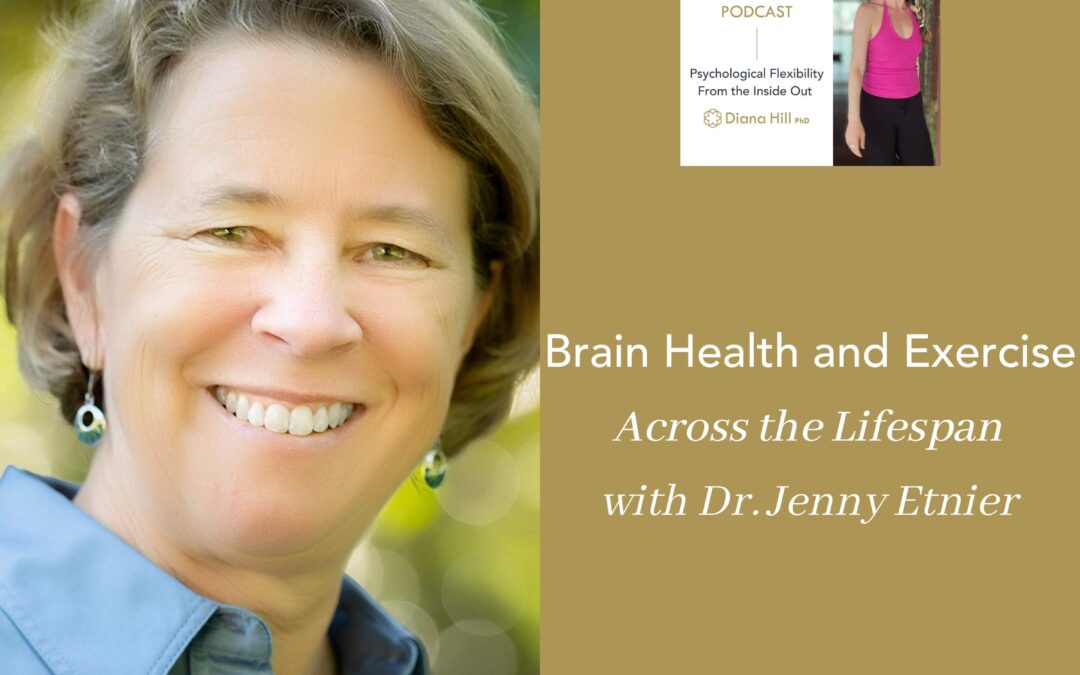Dr. Jenny Etnier is a mom, sports coach, and leading researcher in cognition and exercise. In this science-packed, practical, and motivating episode, Dr. Etnier shares what we are doing wrong when it comes to kids and sports, how just one episode of exercise can enhance our brain health, and why exercise might help you prevent Alzheimer’s disease. Whether you’re an exercise enthusiast or someone looking to infuse their routine with more activity, this episode will motivate you to get moving!
Listen and Learn
- What youth sports coaches are doing wrong
- The problem with specialization and kids’ athletics
- How exercise impacts kids’ cognitive performance
- What to do if you don’t feel like you have enough time to exercise
- Cutting-edge research on exercise and Alzheimer’s prevention
- The role of social support and exercise
- The types of exercise we should do for maximum cognitive benefit
About Jenny Eitner
Dr. Jennifer L. Etnier’s research focuses on the cognitive benefits of physical activity. Adopting a life-span approach, she has explored the benefits of acute and chronic exercise for children, adolescents, young adults, and older adults. She has conducted a series of studies sponsored by the National Institutes of Health that have focused on the benefits of chronic exercise for individuals with a family history of Alzheimer’s disease. She is currently leading the Physical Activity and Alzheimer’s Disease–2 Study in which her team is assessing changes in cognitive performance, blood-based biomarkers, and cerebral structure and function in response to a 1-year walking and strength training program and relative to genetic risk for Alzheimer’s. She is also directing a study supported by the National Institute of Aging examining the effects of personalized, synchronized, beat-accentuated music on older adults’ affective responses, perceived exertion, and adherence to a walking and strength training program. Dr. Etnier received the School of Health and Human Sciences (HHS) Senior Research Excellence Award, Health and Human Performance Teaching Award, UNCG Alumni Teaching Excellence Award, HHS Teaching Excellence Award, HHS Graduate Mentoring Award, and the UNCG Graduate School´s Outstanding Faculty Mentor Award. Dr. Etnier has also written a textbook titled Psychological Benefits of Exercise and Physical Activity, is a co-author on Research Methods in Physical Activity, and has authored two books for the lay public titled Bring Your ‘A’ Game and Coaching for the Love of the Game.
Related Resources
Join Diana for 21 days of ACT Daily Toward Your Health on Instagram Stories!
Episode 101: Break Through Your Exercise Barriers using ACT with Dr. Jason Lillis
Episode 38. How To Be A Healthy Deviant With Pilar Gerasimo
Ep. 64: Rethink Your Position and Move Nutritiously With Katy Bowman (Live From Costa Rica!)
Episode 25. The Psychological Science of Yoga with Dr. Julie Kangas
Episode 23. Overcome Overeating Using Behavioral Neuroscience with Dr. Judson Brewer
Missed the Wise Effort Together Gathering? You can still watch here
Subscribe to my free Wise Effort newsletter
Become a MORE Life in Process member to support the show.
Find out what kind of Striver you are and get your free Skillful Striving Toolkit
Want to learn more about ACT? Take Diana’s on-demand course Foundations of ACT
Diana’s Events
Sign up for the Wise Effort Together Gathering
Sign up for Diana’s Reset and Restore Retreat in Costa Rica in Spring 2024!
Meditate with Diana at Yoga Soup
Learn from Diana at an upcoming event
Connect With Diana
Thank you for listening to Your Life in Process!
Subscribe to the podcast for free on Apple Podcasts, Spotify, Google Podcasts.
Follow Diana on YouTube, Instagram, LinkedIn, Facebook, and Diana’s weerview.bsite.
Leave feedback for the show or a voicemail at (805) 457-2776
Thank you to the team Craig and Ashley Hiatt. Thank you to Benjamin Gould of Bell & Branch for your beautiful music.
Remember when you become psychologically flexible, you become free.


